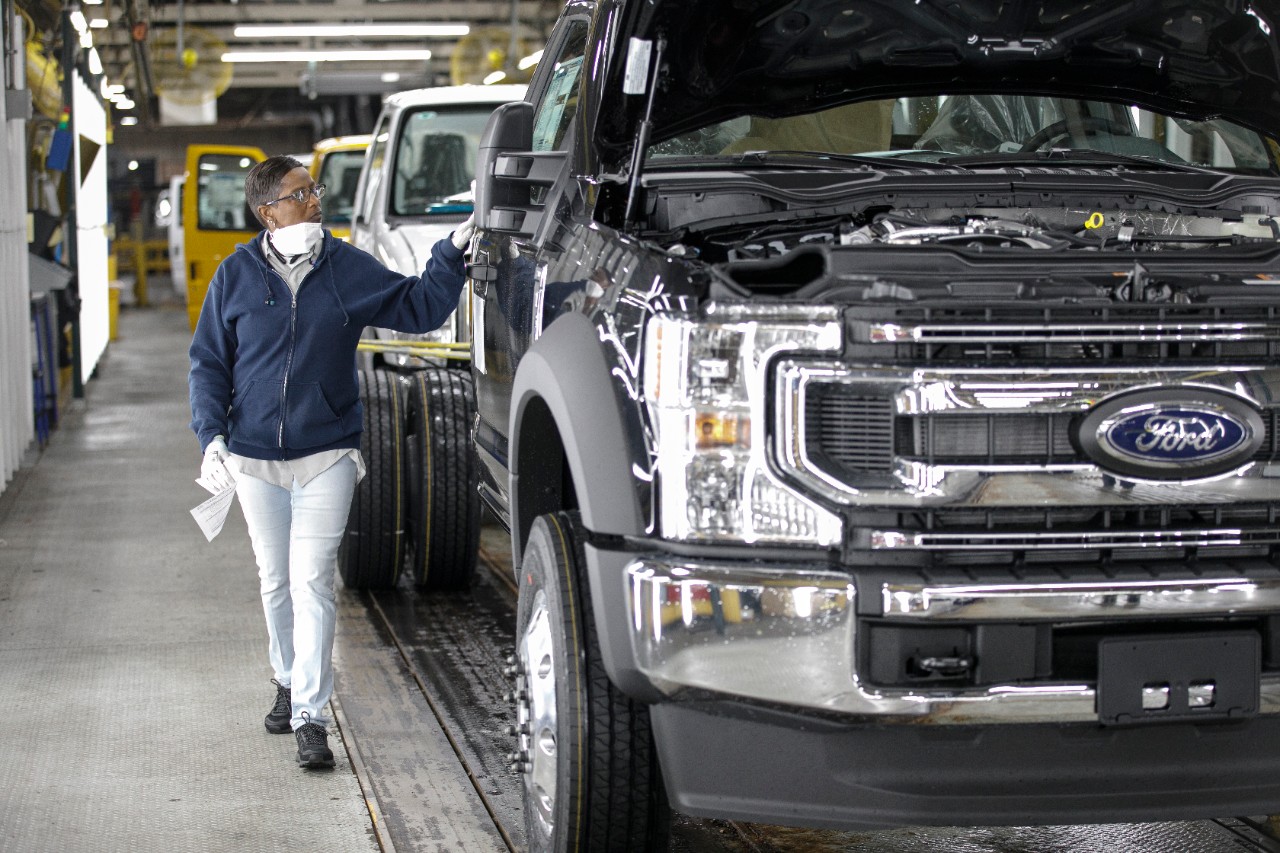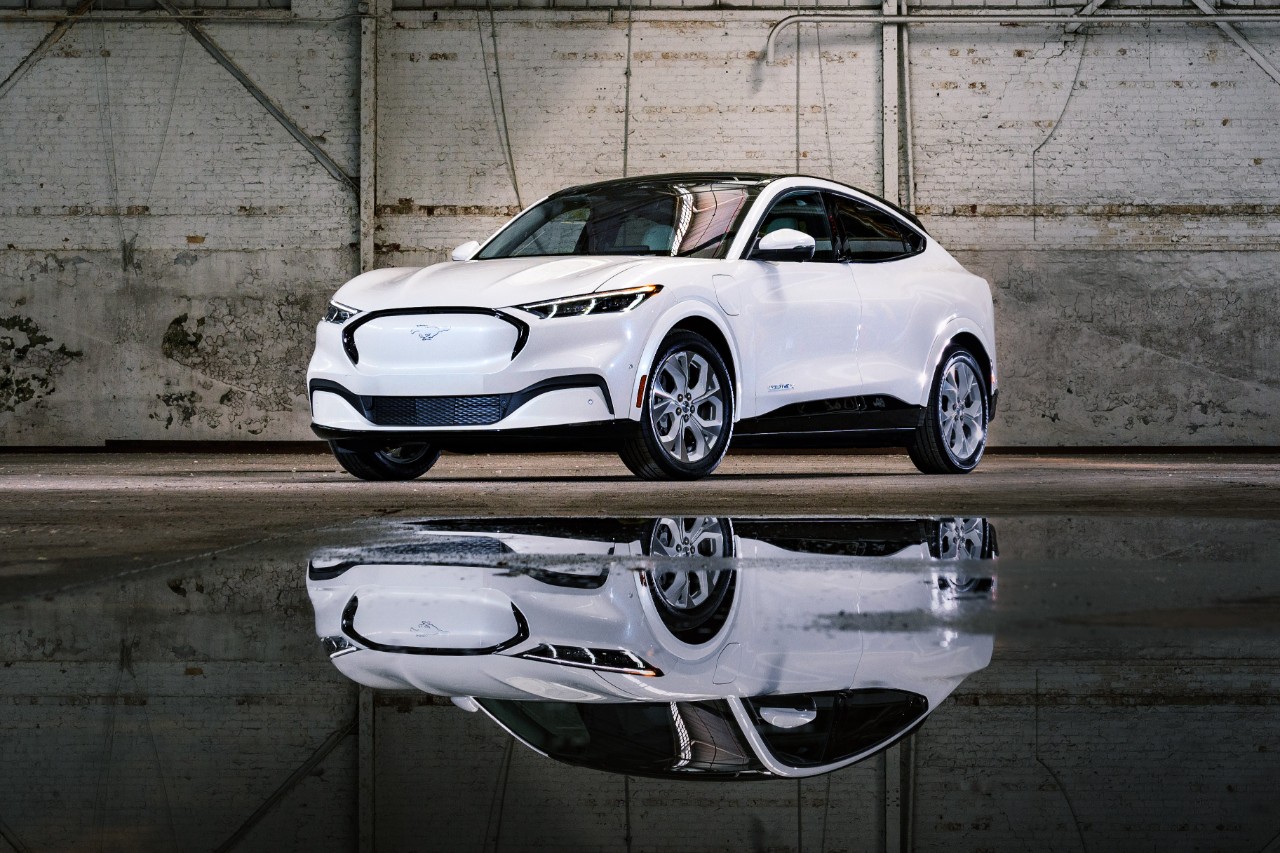If you saw pictures of Ford's (F 0.36%) Atlas concept truck at the 2013 NAIAS show, you know that it looks tough and rugged. If you haven't seen it, look below. There's a reason for this new look -- it's all a part of Ford's plan, which I'll uncover shortly.
The Atlas wasn't the only truck making noise at NAIAS, with the new Ram winning truck of the year, and the 2014 Chevy Silverado from General Motors (GM +0.26%) slated to release mid-2013. That gives the new Ram and Silverado at least a year head start on sales before Ford's new F-150, the Atlas concept, hits the showroom in late 2014. Chrysler and GM are going to need every minute of the head start; here's one reason why.
Take a look

Brand loyalty
Let me set the stage here: We know how important brand loyalty can be, especially with certain categories. Ford and Chevy trucks have just as loyal a fan base as you'd expect with Apple and its competitors. For instance, during last year's Super Bowl, when General Motors put out a few commercials taking shots at Ford, people got a little worked up.
That said, Ford and GM are taking two different paths with their next generation of trucks. GM is banking on muscle attracting customers to its popular trucks, and offering a different, smaller truck for fuel efficiency. Ford is cramming both concepts into its next generation truck, taking a huge leap into fuel efficiency, yet keeping its tow power.
It's taking a huge risk by replacing a chunk of steel in the truck with aluminum, reducing the weight by 700 lbs. One large risk will be convincing its consumers that the truck is still "Built Ford Tough," and won't jeopardize its towing capacity. That's the reason Ford made a more intimidating, muscular looking concept, hoping it will persuade consumers' first impressions that aluminum hasn't made it any less of a truck.
Ford is number one in survey
One thing Ford clearly has in its favor is brand loyalty, giving it the edge needed to keep its customers coming back, even with the drastic change that the Atlas represents. Here's a survey released on Tuesday by Experian Automotive, a leading global information services company, ranking the top 10 brands that command the most loyalty:
| Brand | Percent |
|---|---|
| Ford | 44.10% |
| Toyota | 43.30% |
| Kia | 39.90% |
| Hyundai | 38.60% |
| Honda | 38.10% |
| Chevrolet | 38.00% |
| Subaru | 35.70% |
| Nissan | 34.70% |
| Mercedes-Benz | 34.60% |
| Lexus | 34.10% |
What the percentages measure is how often an owner of a certain brand returned to market to buy the same brand, yet again. This is proof that Ford's rebound since the recession is for real, and that it's producing a much better product than it was a decade ago. Jeffrey Anderson, director of consulting and analytics for Experian Automotive, says it perfectly:
Ford continues to perform exceptionally well in brand loyalty, with a range of products that are getting customers back to the showroom again and again ... Loyal customers provide a ready-made source of sales and constitute an important element of maintaining or expanding market share and profitability.
Aside from being number one overall, what's more impressive is that Ford has seven of the top 10 models for brand loyalty. Obviously, this includes more than trucks, but Ford having brand loyalty to this degree enables it to take risks, like the Atlas, to differentiate its brand and gain market share.
Bottom line
Timing is everything, and the 2013 NAIAS should have been GM's time to shine, with Cadillac ATS winning "Car of the Year," the new Corvette unveiling, and its most profitable auto -- the Silverado -- being paraded. Ford stole the spotlight when its flashy Atlas Concept was introduced, lowered from the ceiling. Ford is doing its best to entice potential buyers to wait for its next generation truck release, while GM is going to use its new "Find New Roads" marketing campaign to get a foothold during its yearlong head start.
My bet is on Ford, it's already proven that it has completed an entire company turnaround since the recession. It's proven that it can run a long-term successful marketing campaign while producing a better product, helping it create strong brand loyalty. I believe those factors will aid Ford in releasing a successful next-generation truck, take market share from the Silverado, and enable its bottom line to continue growing.







